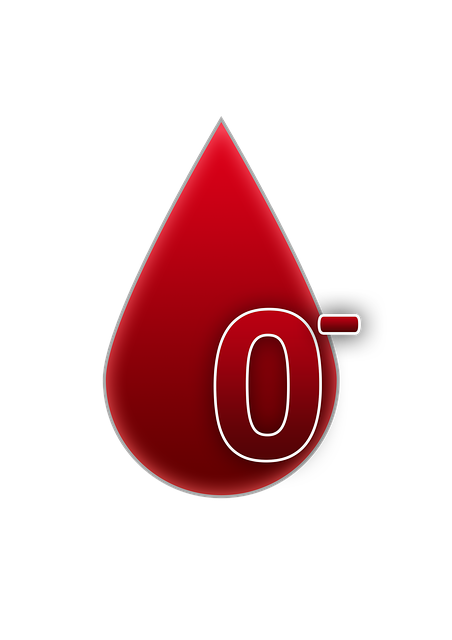Blood tests for vitamin deficiency are essential tools for global health management, enabling early detection of imbalances critical to overall well-being. In today's digital age, accessible and affordable testing options empower individuals to monitor their nutritional status through simple procedures. By interpreting test results within established reference ranges, healthcare professionals can guide dietary adjustments or supplement recommendations to optimize vitamin levels, preventing severe health complications. Prompt action based on test findings ensures proactive management of vitamin deficiencies, fostering balanced health through tailored lifestyle and dietary choices.
Discover the power of a simple yet transformative blood test for vitamin deficiency monitoring. In today’s fast-paced world, maintaining optimal health is crucial. This comprehensive guide explores how regular vitamin level checks can prevent and manage deficiencies. We demystify affordable testing options, guide you through interpreting results, and offer practical tips for making informed changes. Take control of your well-being by understanding the impact of vitamins on your overall health.
- Understanding Vitamin Deficiencies and Their Impact
- The Benefits of Regular Vitamin Level Monitoring
- Exploring Affordable Blood Testing Options
- Interpreting Blood Test Results for Vitamins
- Incorporating Changes Based on Test Findings
Understanding Vitamin Deficiencies and Their Impact
Vitamin deficiencies are a growing concern in today’s world, with various factors contributing to their prevalence. A blood test for vitamin deficiency is a crucial tool in understanding and addressing these issues. By analyzing specific vitamin levels in the blood, individuals can gain insights into potential imbalances that may be impacting their overall health.
These deficiencies can have far-reaching effects on the body. From weakened immune systems and fatigue to bone fragility and cognitive issues, vitamins play an essential role in maintaining optimal bodily functions. Recognizing the signs and symptoms of specific vitamin shortages is vital, as prompt intervention through targeted dietary changes or supplements can help prevent more severe complications.
The Benefits of Regular Vitamin Level Monitoring
Regular monitoring of vitamin levels through a simple blood test offers numerous advantages, especially in today’s fast-paced world where nutritional needs can often be overlooked. For one, it enables individuals to identify potential vitamin deficiencies early on, which is crucial as these deficiencies may not present obvious symptoms initially. This proactive approach allows for timely interventions, such as adjusting dietary habits or considering supplements, thus preventing more severe health issues down the line.
Additionally, keeping track of vitamin levels helps ensure that one’s nutrition is optimized for overall well-being. Different vitamins play distinct roles in various bodily functions, from boosting immune systems to supporting healthy bones and energy production. By regularly assessing these levels, individuals can tailor their dietary choices and lifestyle to meet their specific nutritional requirements, fostering a more balanced and vibrant state of health.
Exploring Affordable Blood Testing Options
In today’s digital era, exploring affordable blood testing options for vitamin deficiencies has become more accessible than ever. The traditional methods of assessing vitamin levels through blood tests can be cost-prohibitive for many, but advancements in healthcare technology have opened doors to more economical alternatives. With a growing awareness about the importance of maintaining optimal vitamin levels for overall health, consumers are increasingly seeking affordable solutions.
Delving into these options reveals a range of choices designed to make vitamin monitoring more accessible. From at-home testing kits that provide quick results to clinic-based tests with comprehensive analyses, there’s something for everyone. These innovative approaches not only offer cost savings but also convenience, allowing individuals to take charge of their health without breaking the bank. In terms of affordability, blood tests for vitamin deficiency are becoming a game-changer, empowering folks to make informed decisions about their nutrition and well-being.
Interpreting Blood Test Results for Vitamins
Interpreting blood test results for vitamins is a crucial step in understanding your nutritional health. The most common tests, like the Complete Blood Count (CBC) or specialized panels, measure specific vitamin levels in your bloodstream. For instance, a low level of Vitamin D might indicate a deficiency, while elevated homocysteine could suggest a B-vitamin imbalance. These results provide valuable insights into your body’s nutritional needs.
When reviewing your blood test for vitamin deficiency, healthcare professionals consider reference ranges established through extensive research. Levels outside these ranges may prompt recommendations for dietary changes or supplementation. For example, a Vitamin B12 level below the lower limit could suggest pernicious anemia and necessitate injections or oral supplements. Regular monitoring allows for proactive management of vitamin levels and overall well-being.
Incorporating Changes Based on Test Findings
Upon receiving the results from your affordable blood test for monitoring vitamin levels, it’s crucial to incorporate any necessary changes into your lifestyle and diet. If the test reveals a deficiency in specific vitamins, it’s essential to take immediate action. This could involve adjusting your dietary habits, such as increasing intake of vitamin-rich foods or considering dietary supplements tailored to address the identified deficiencies.
For instance, if the blood test indicates low levels of Vitamin D, you might incorporate more sunlight exposure (while practicing safe sun practices) or include foods fortifying this vitamin in your meals. Similarly, if there’s an iron deficiency, you may need to focus on eating iron-rich foods and possibly consult a healthcare provider for further guidance on managing the condition effectively.
A simple and affordable blood test for vitamin levels can serve as a powerful tool for maintaining optimal health. By understanding vitamin deficiencies and their impact, regularly monitoring these essential nutrients, interpreting test results accurately, and incorporating necessary changes, folks can ensure their bodies are functioning at their best. In today’s world, this accessible method of nurturing our inner symphony of vitamins is more important than ever.
